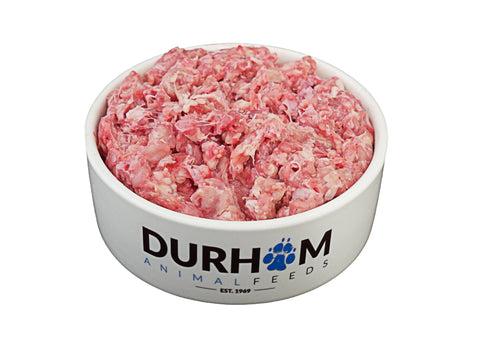Guide To Caring For Rats

Fancy rats are descendants of the brown rats, which originate from Asia. They are social animals so it is strongly recommended they be kept in single sex pairs or groups. Young rats are often easier to introduce than adults, although adults of the same sex can sometimes be introduced.
Rats are intelligent and interactive animals that make good family pets. They can become very tame when handled regularly and typically live for around two and a half years.
GENERAL CARE
The most common ailments seen in rats are sneezing and breathing problems. Be sure to use appropriate dust-free bedding in your ratsí cage to help prevent these problems occurring. If sneezing and breathing problems persist, seek the attention of a vet.
Rats can get mites and lice, which will be very uncomfortable for your pet. A recommended topical small animal spray will usually deal with these and your pet shop or vet can advise.
Occasionally a rat’s teeth will overgrow, requiring clipping by a vet.
Female rats in particular can develop mammary tumours. The risk of this can be lowered by not overfeeding your rats or allowing them to become too overweight.
Rats are very good at hiding signs of illness and can become poorly quickly. If you are at all concerned about your pets’ health speak to your vet. It is recommended to find a vet that has experience with rats.
CHOOSING YOUR RATS
There are many colours and varieties of fancy rat available, whichever variety you decide on your rats should be a minimum of six weeks old before you take them home. Ensure they are friendly and healthy before purchasing them.
A healthy rat should be:
Bright and alert
Have no signs of discharge from eye, ears, mouth, and nose
Have a clean anal and genital area
Have a glossy coat with no bald patches and no sores on the skin
Should have no signs of breathing problems
Should move around the cage easily
Should feel well covered and not bony, and also not overweight
HOUSING
A cage of at least 80cm x 60cm x 50cm will give your rats adequate space. Rats love to climb and will appreciate separate areas for feeding, sleeping, and exercise. Cages specially designed for rats will usually be of plastic and wire and maybe on two or more levels. Most importantly they must be escape-proof.
Rats will enjoy a varied environment with branches, tunnels, and ropes.
A dust-free cardboard based product makes an ideal floor covering.
Your rat will also appreciate a choice of sleeping places, such as hammocks, baskets and nest boxes. Rats are clean in their habits but will need their bedding changed and their cage cleaned with a pet-safe disinfectant at least once a fortnight. You can also train your rats to use a litter tray. Litter should be paper-based.
As rats are indoor pets they should be kept at an even temperature ideally between 16C and 22C. You should avoid putting the cage in draughts, direct sunlight or in damp or humid conditions.
Rats are inquisitive and active therefore they should be provided with as much stimulation as possible. A solid exercise wheel and a selection of toys to avoid boredom should be provided.
FOOD AND WATER
Rats are omnivores and so will enjoy a varied diet. A complete rat mix, available from most pet shops, should be the basis of their diet. Scattering your ratsí food around the cage, as well as using a bowl is a good form of enrichment. Dry mix should be supplemented with small amounts of vegetables, such as kale and broccoli, and the occasional boiled egg. Uneaten fresh food should be removed regularly.
Food bowls should be sturdy, gnaw-proof and easily disinfected. Fresh drinking water should always be available for your rats. It should be provided by a gravity-fed water bottle designed to fit your rats’ cage.
HANDLING
Handling your rats often will help them build up a relationship with you. When you first take your pet rats home, allow them 24 hours to get used to their new environment, then allow them to sniff your hands before handling them. This will get them used to your smell. Stroke your rat and be sure he is facing you, then cup both hands around him and pick him up. Never pick your rats up by their tail.
Rats will also enjoy a ‘free range’ time in a designated safe area, such as a sofa or hallway, with no electrical wires or narrow spaces. Always supervise your rat during free range time.
SHOPPING LIST
Feed bowl
Dust free floor covering, such as shredded cardboard
Soft bedding and hammocks
Rat food
Wooden chew toys
Mineral stone
Tubes or other toys
Vitamin drops
Pet safe disinfectant
Water bottle and bottle brush
Escape proof cage
Solid exercise wheel
Small plastic pet carrier
Book on Rat care
The Animal Welfare Act 2006 means all pet owners have a legal duty of care to their pets. Anyone who is cruel to an animal or is found not to be providing the five animal welfare needs, as listed below, can be fined and sent to prison.
The Five Animal Welfare needs:
1. Environment: Pets should be given the correct housing according to its size, this includes shelter, space to exercise and a secure, comfortable place to rest.
2. Diet: Pets should be offered the correct type and volume of food to cover all their nutritional needs alongside access to clean, fresh water.
3. Behaviour: All pets should be allowed to exhibit normal behaviour patterns and should be provided with the facilities to do so.
4. Company: Some animals require the company of their own kind, whilst others should be kept on their own.
5. Health: All animals should be protected from pain, suffering, injury, and disease, and given veterinary treatment if they become sick or injured.
Credit to The Pet Charity www.thepetcharity.org.uk
Registered Charity No: 1052488








